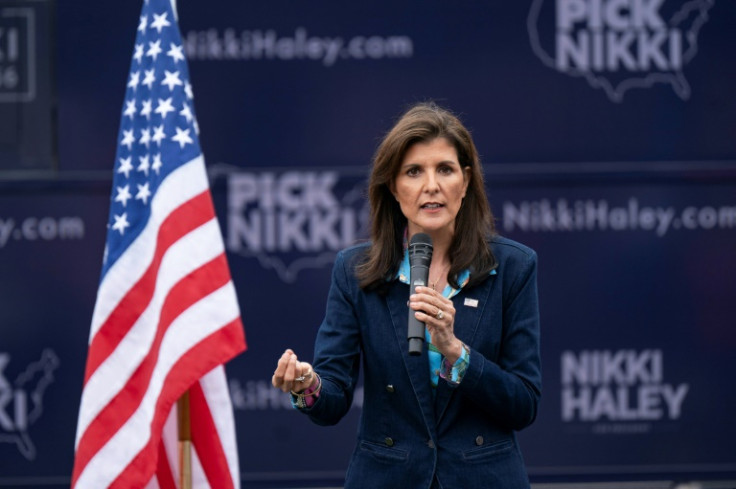Nikki Haley Exits 2024 Presidential Race After Super Tuesday Setback
Former South Carolina Gov. Nikki Haley has opted to suspend her campaign for the 2024 presidential race on Wednesday, following her defeat in all states except Vermont during Super Tuesday's primary contests.
"I am filled with the gratitude for the outpouring of support we've received from all across our great country, but the time has now come to suspend my campaign," Haley announced Wednesday morning. "I said I wanted Americans to have their voices heard — I have done that. I have no regrets. And although I will no longer be a candidate, I will not stop using my voice for the things I believe in."

During her remarks, Haley refrained from making an endorsement but instead urged Trump to garner support from both Republicans and independent voters who had previously backed her. She emphasized that it was Trump's responsibility to win over those who did not support him, stating that politics should be about inclusion rather than exclusion.
Haley's decision to withdraw from the 2024 presidential race comes after Super Tuesday's primary contests and marks a pivotal moment in the Republican Party's trajectory. Haley's departure signifies the consolidation of the GOP nomination by former President Donald Trump, setting the stage for an intensified battle in the upcoming general election.
Haley entered the presidential race as a prominent Republican figure with significant political experience, including her tenure as South Carolina's governor and her appointment as United Nations ambassador under the Trump administration. Despite her credentials, Haley faced an uphill battle from the outset, struggling to gain momentum and secure widespread support within the Republican Party.
One of the key challenges for Haley was her measured criticism of former President Trump. While she distanced herself from Trump's conduct during the Capitol riot and other contentious moments of his presidency, Haley's attempts to navigate a middle ground between supporting and criticizing Trump ultimately failed to resonate with the Republican base.
As Trump's influence remained potent within the party, Haley's reluctance to fully embrace or disavow him left her in a precarious position, unable to mobilize sufficient support to mount a viable challenge. The culmination of Haley's struggle came with the Super Tuesday primary contests, where she suffered resounding defeats in all states except Vermont.
Despite her victory in Vermont, Haley's inability to win significant support elsewhere solidified the overwhelming dominance of Trump within the Republican primary electorate. With dwindling prospects and mounting pressure from influential Republicans to bow out, Haley made the decision to suspend her campaign.
Haley's withdrawal from the race not only cedes the Republican nomination to Trump but also signifies the end of a nominal attempt at intra-party soul-searching within the GOP. While Haley's candidacy initially hinted at a potential divergence from Trump's grip on the party, her ultimate capitulation underscores the enduring influence of the former president and the reluctance of Republican contenders to challenge his authority directly.
The aftermath of Haley's exit raises crucial questions about the future direction of the Republican Party. With Trump effectively securing the GOP nomination, the party appears poised to double down on his brand of politics, characterized by populism, nationalism, and unwavering loyalty to the former president.
Haley's departure signals a consolidation of power within the Trumpian faction of the party, sidelining dissenting voices and further entrenching Trump's influence in Republican politics. Moreover, Haley's failed bid highlights the challenges facing Republicans who seek to chart a different course for the party.
Despite her efforts to appeal to anti-Trump Republicans and independent voters, Haley's moderate approach ultimately fell short in a primary electorate dominated by Trump loyalists. As the GOP grapples with its post-Trump identity, the sidelining of figures like Haley underscores the difficulty of reconciling competing visions within the party and the enduring strength of Trump's hold on its base.
With the Republican nomination effectively settled, attention now turns to the impending general election showdown between Trump and President Joe Biden. Trump's consolidation of the GOP nomination early in the primary season positions him as a formidable challenger to Biden, setting the stage for a highly contentious and polarized campaign.
As both candidates vie for the support of their respective bases and swing voters, the outcome of the 2024 presidential race remains uncertain, with profound implications for the future trajectory of American politics.
© Copyright IBTimes 2024. All rights reserved.












